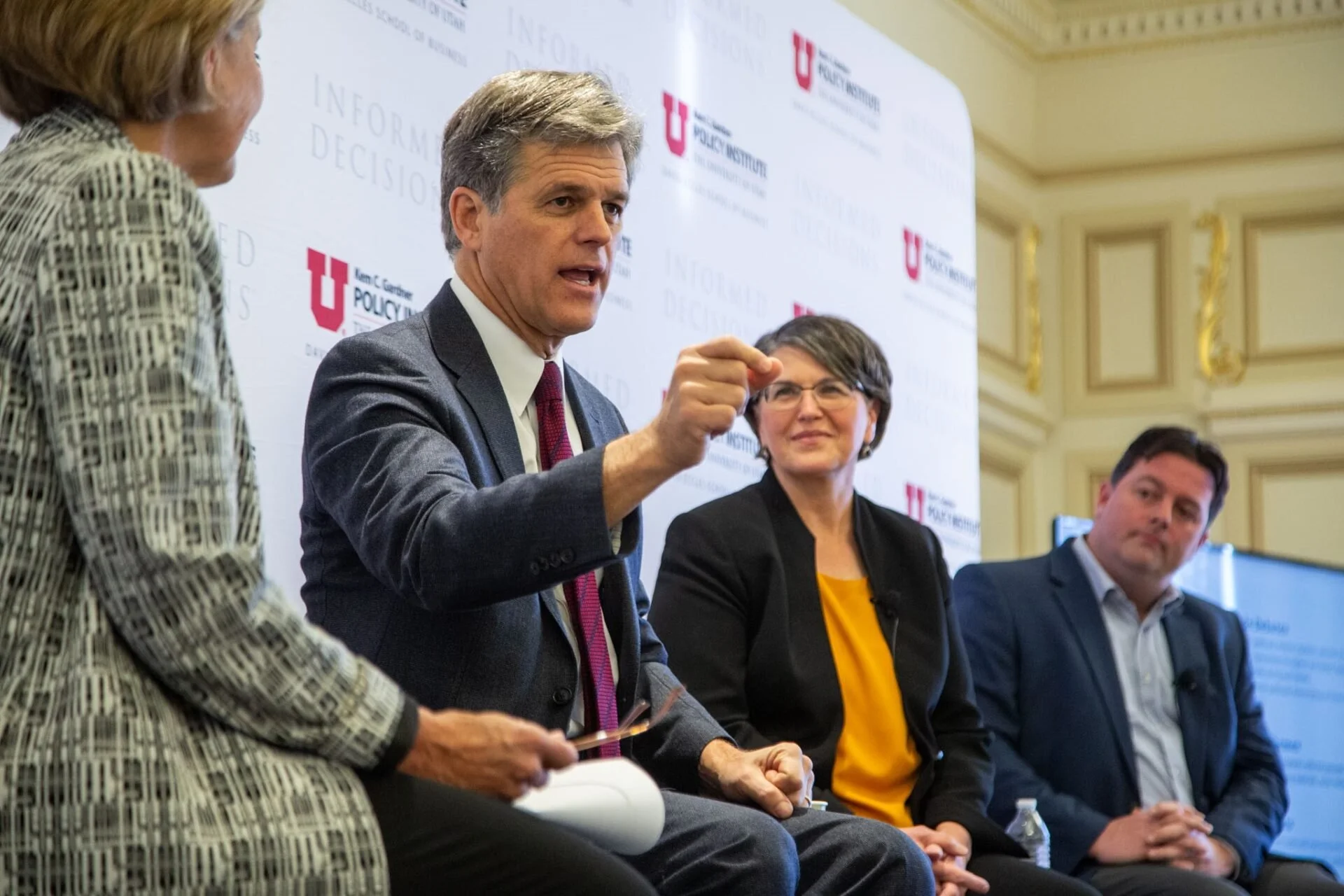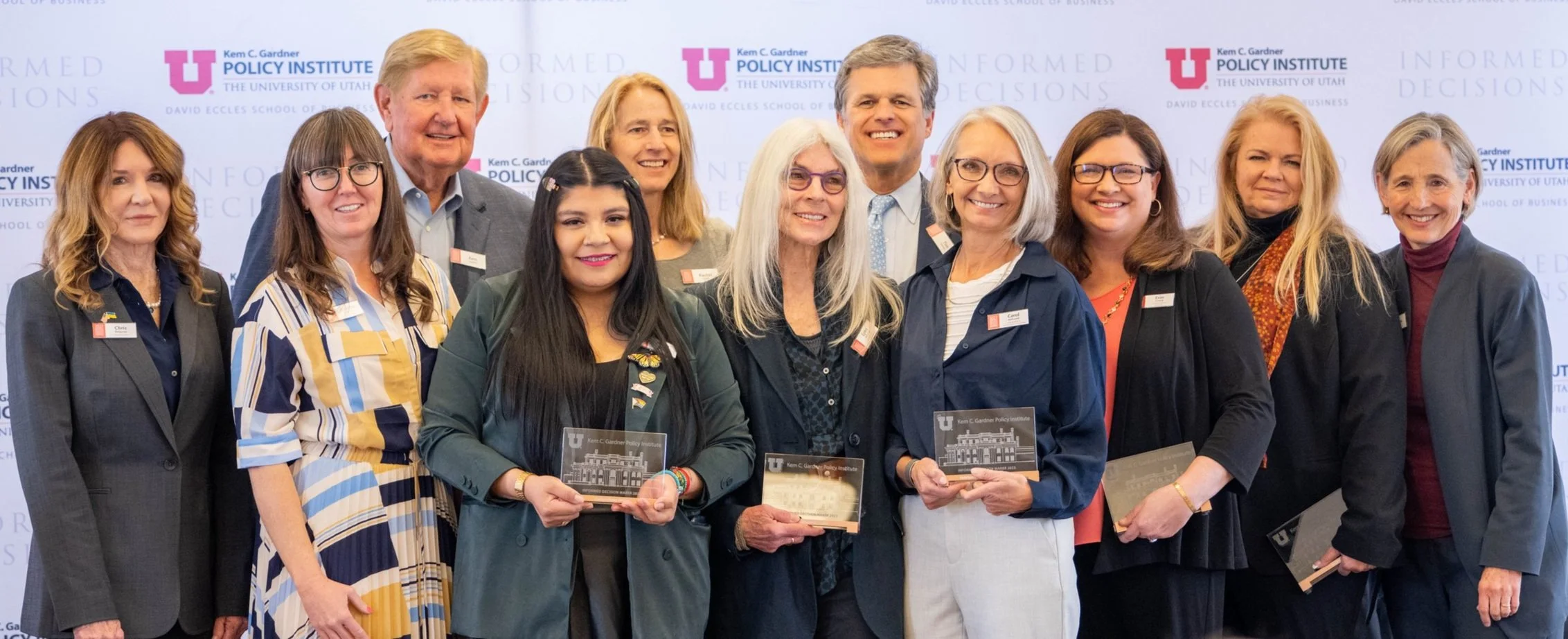I’ve heard it over and over again: “this is going to be a terrible year.” Wars could get worse, divisiveness is everywhere, violence is an increasing risk at home, our mental health is disastrous, and our presidential election is going to tear us apart. “I’m just bracing for chaos, Dad,” my son told me last week. “It’s going to be rough.”
Read MoreLast week I was in Atlanta for the annual conference of the Collaborative for Academic, Social, and Emotional Learning (CASEL). On opening night, I was honored to host a chat with Jewel, the multi-platinum, transcendent-voiced, singer-songwriter who’s not only a rock star but a star in teaching social and emotional learning, too. She told stories of her childhood abuse, her homelessness, and her awakening to her own power and ability to change the course of her life.
Read MoreAmericans may be more divided than ever, but some say our disagreements aren’t causing the division, but what we do when we disagree. At this year’s Fall Sussman Lecture, Tim Shriver will discuss “The Dignity Index”, which was developed by his nonprofit UNITE, and share how it can be applied to solve the country's toxic political and cultural divides.
Read MoreEarlier this year, Washoe County Commissioner Mariluz Garcia had enough of what had been months of disrespect from the public during county commission meetings.
Read MoreImagine a world where it’s normal and unremarkable for people to disagree without insults, threats and outrage spilling into their conversation. That is no longer the world we inhabit, where outrage and contempt have become the norm, but Tim Shriver has a solution.
In a word, dignity.
Read MoreWhat is “dignity in public discourse”? It’s a question community engagement expert Tami Pyfer will explore later this month during a special meeting of Washoe’s Board of County Commissioners. The Oct. 24 meeting includes a strategic planning session following Pyfer’s workshop.
Read MoreUtah Gov. Spencer Cox is continuing his campaign to try to convince Americans to “disagree better” with a recent series of bipartisan events in New Hampshire.
Read MoreMeet Tami, a Utah special-ed teacher, Mormon Tabernacle singer and mom of five who launched a civility index website to grade America’s politicians. And then had to take it down because of comments we will say weren’t remotely civil.
Read MorePolitical division in the United States has reached unprecedented levels in recent years, casting a long shadow over the nation’s democratic fabric. This deep-seated polarization is characterized by stark ideological differences, creating an increasingly hostile political landscape. The roots of this political division can be traced to several factors, including economic disparities, cultural clashes, and the rise of identity politics. Social media has furthered this political division by creating echo chambers that reinforce pre-existing beliefs and stoke animosity toward opposing viewpoints.
Read MoreIn his opening meeting this past week as Chair of the National Governors Association, Republican Governor Spencer Cox of Utah called on the nation's governors to join his initiative Disagreeing Better: Healthy Conflict for Better Policy. The initiative, designed to improve the quality of public debate, urges governors to be leaders in elevating the substance and reducing the toxic style of current political discourse.
Read More“Graduates, I don’t come here to ask you to have faith in human dignity. I don't come here because I have some deep belief in it. I don't come here because I have a theory about it. I come here because I've seen it. I know it exists,” Shriver said. “I’m here to ask you — to beg you — as you go forward from here, don't listen to the voices that are telling you to blame and shame and treat others with contempt. Turn them off, tune them out, shut them down.”
Read MoreHow are you going to change the discourse with your organization UNITE?
We’re just trying to reveal to people the ways in which contempt has infiltrated their lives. Most people are not aware of it. We don’t have to tell them what to do, just have a discussion. Challenge yourself. Invite yourself. Who’s your best self? That’s the question. Create a conversation so that people can dialogue about how to change it, and then ultimately create tools for people that want to change so that they can do so. It’s pretty easy. Treat your fellow Americans with dignity. Full stop. That’s the invitation.
Read MoreThe “perfect storm” of forces has contributed to the nation’s “cycle of addiction to contempt,” he said.
Restoring dignity to public discourse and to basic human interactions requires self-reflection and committing to personal change regarding our perceptions of those we consider “other,” he said.
Read MoreBut one thing I know for sure: giving up isn’t American. And one more thing I know for sure: giving up isn’t the best option. We can treat each other with dignity and begin the process of easing divisions. We can be curious about the opinions of others and look for creative solutions to our problems. We can break our addiction to hatred and contempt, and prevent further despair, loneliness, and violence. And we can do all this starting right now.
Read More…the antidote to rural rage and resentment can’t come from outside our communities—it lies within. To get respect, we must give respect (in the same way, rage begets more rage).
Read MoreThe lesson of the scapegoat urges us to choose a different course. The goat led into the wilderness carries away our sins if—and only if—we simultaneously offer ourselves up on the altar of collaboration, mutual respect, and inspired vision. Passion can be a powerful force for positive change, and we have a duty to call out misinformation and faulty reasoning wherever it appears. But we can do so with both professionalism and mature articulation. When we do, especially when those who oppose us discard good manners for bluster, we gain the upper hand simply by maintaining our personal dignity.
Read MoreA couple of special needs advocates have created a tool that may help boost American civility. It couldn’t come at a better time.
Tim Shriver, chair of the Special Olympics, and Tami Pyfer, a former special education teacher, are promoting something they call the “Dignity Index,” which scores political speech for civility and divisiveness. The index classifies political speech into eight levels. Level eight, the most civil, is speech that offers dignity and hope. Level 1, the least civil, dehumanizes and advocates violence.
Read MoreCould a new social scientific tool help us to publicly shame acts of incivility—and publicly praise acts of civility—in a way that ultimately improves American political and civic life? Tami Pyfer, a former local official in Utah, thinks so. The Dignity Index was developed with a national nonprofit, and Pyfer and a bipartisan team deployed it in Utah during the midterm elections. Amanda Ripley recently discussed the project in a fascinating essay in Politico, and while the reception by the public thus far leaves a lot to be desired, the concept is worthy of deeper consideration.
Read MoreIn early October, Tami Pyfer, a former Special Ed teacher, high-level Republican appointee and member of the Tabernacle Choir, logged onto Facebook, Twitter and Instagram and posted a carefully crafted announcement.
“Are you frustrated by the hate and negativity in our country’s political and public discourse?” the post asked. “You’re not alone.” A new tool called the Dignity Index was now on the case. It was designed to score politicians’ rhetoric on an eight-point scale based on how dignified or contemptuous it was. Voters would find the scores on the Dignity Index’s website, or, more likely, through media coverage, much like they might come across candidates’ NRA or Planned Parenthood scorecards. And it was already being deployed that very week in Utah, just in time for the midterms.
Read MoreWhen Republican Sen. Mike Lee and his U.S. Senate opponent Evan McMullin met for a debate in October, they may not have been aware a group of University of Utah students was listening intently, waiting to see whether each candidate treated his opponent with dignity or contempt. As it turned out, both Lee and McMullin came out with a few gold stars and a few red flags, according to the scores assigned them by the students, who were part of a pilot project in Utah sponsored by the Dignity Index, an organization founded by Tim Shriver.
Read More



















